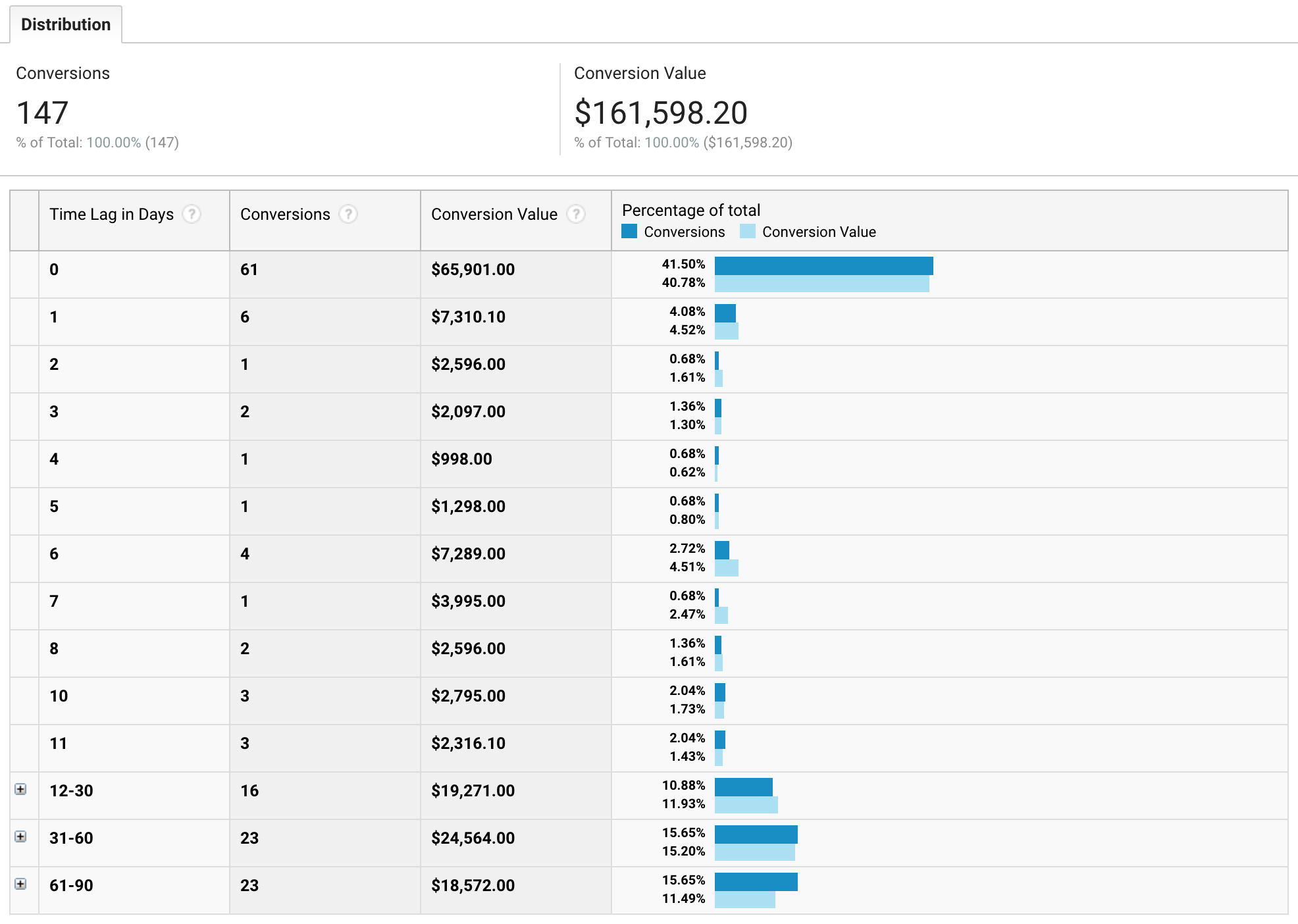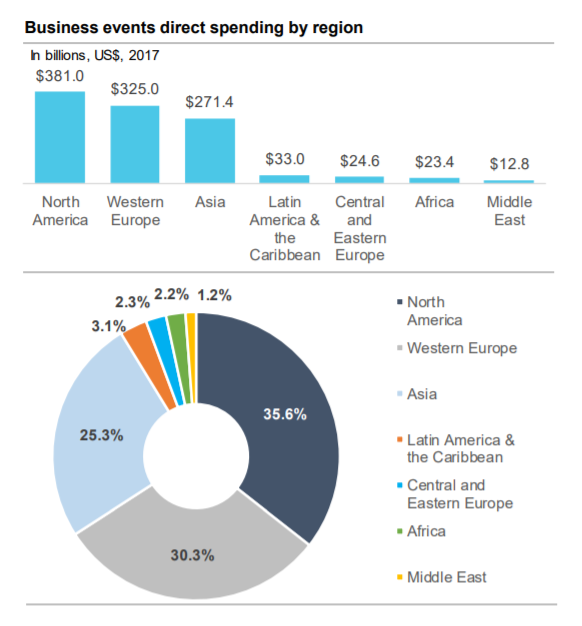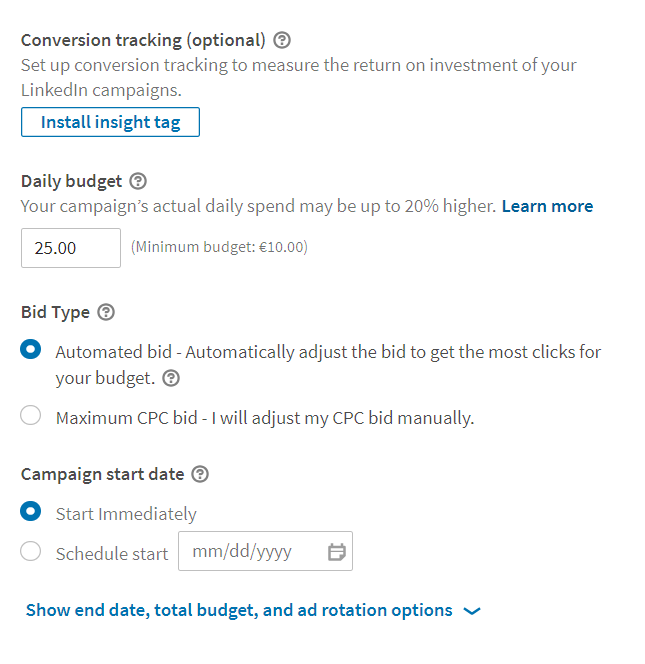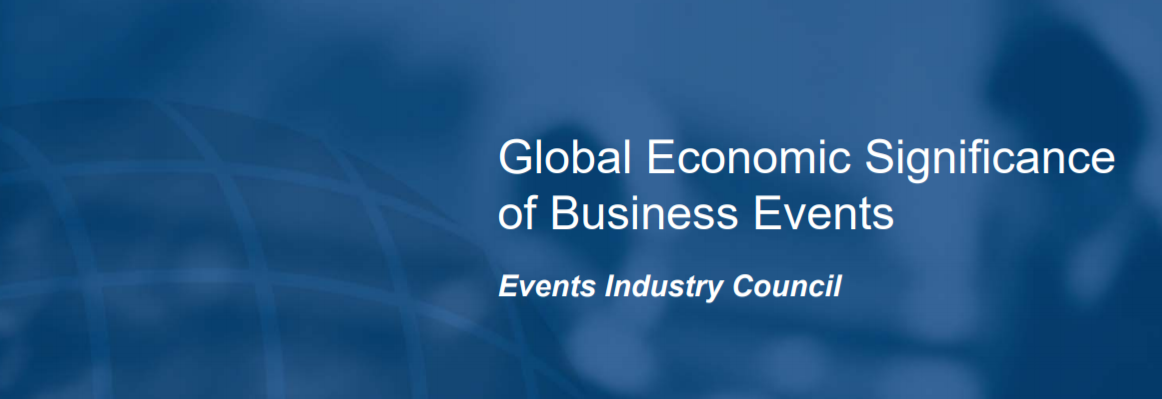
Event FAQs: A 14-part run down of the most common questions
As the year comes to a close, I think we’re all a little tired.
Committing yourself to a new task or project becomes so much harder as the daylight hours gets shorter and everyone’s thinking about their holiday celebrations.
With that in mind, I wanted to write something that was enjoyable yet easy to read; helpful, yet not a million lines long.
As such, I did a bit of research into what people spent the year searching about the events and conference industry, and then did some more research into how to answer those queries.
I found these questions through a combination of SEO tools that I regularly use, and these were the answers I found:
1) How much do event planners make?
We did a bit of research into this earlier in 2018. The tl;dr is that the global average is $62,169, but we broke down some geographical averages for the USA, the UK, Ireland, Germany, Canada, and Australia, and larger cities therein.
-1.png)
2) How much do conference speakers get paid?
This is, unfortunately, an “it depends” scenario.
I’ve seen speakers charge anything from $1,000 to $75,000 per speaking engagement, and I’m sure there are people whose time is yet more expensive.
The best resource I’ve found for speakers who want to calculate how much they should be charging is from The Speaker Lab. They’ve made a simple questionaire on Typeform. You’ll need an email address to access your results as it’s a required field, but it’s certainly comprehensive.
Below you’ll find the questions asked, and I put in the following example data:
Q1. How many times will you be speaking at the event (30-60 minute slot)?
A. Once.
Q2. Approximately how many talks (free or paid) have you given in your career?
A. Less than 10.
Q3. What industry is the event in?
A. Corporate.
Q4. Will you need to fly to the event?
A. Yes.
Q5. Will you need overnight accommodations?
A. Yes.
Q6. Is the event being held in a location you’d like to visit for business or personal reasons?
A. No.
Q7. Would you attend the event/conference if you were NOT being asked to speak there?
A. Yes
Q8. Will you have an opportunity to sell your digital/physical products or services?
A. No.
With that info, they’ve suggested that I charge $2,900.
You can calculate your own here. It’s also a useful resource for organisers to a point, but some of the questions are highly preferential and you may not have that info about your speakers ahead of time.
3) How much does conference WiFi cost?
There’s a lot of moolah tied up in the conference WiFi game, I’ve come to learn. One example: the SVP of MGM Resorts International recently invested $14 million in a proprietary agreement with Cisco to cater for all of their resorts. For context, that’s a little more than the entire GDP of Togo.
There are two types of WiFi package available to organisers according to an article by Meetings Net.
One option sees organisers estimating the number of devices that attendees will be using to then estimate and pay for the amount of bandwidth they’ll require for the duration of the event or conference.
The other option is to negotiate a fixed bandwidth with your vendor with unlimited users, meaning you “own” that bandwidth, so to speak, and can analyse and report on it to iterate on that usage for your next event and get closer to the amount (and dollar value) you actually need.
That said, some dedicated conference venues have started including the cost in their packages, including the Convention Center Dublin which can facilitate up to 22,000 devices.
However, the average cost of WiFi for a venue that lists this as an expense can vary wildly. As just one example, the San Diego Convention Center charges $5,900 for dedicated 6MBps internet access.
4) Are events vatable?
I’m going to preface this by telling you to go to your accountant with questions like this. Not only to shirk any personal liability, but also because accountants are fonts of knowledge about all things numbers and tax law that we regular humans just aren’t privy to.
However, as a rule of thumb, VAT refunds aren’t possible when it comes to incentive travel. But, there are many other ways to reclaim VAT when hosting conferences if the organisation behind it is VAT registered before any transactions take place.
Usually, according to EuroVAT, organisers can charge VAT (within the EU at least) to eligible attendees and sponsors, or they can charge VAT to the client if they are an events firm.
If you’re looking for a deeper dive into tax, these resources from Ernst & Young go into depth about international variations.
5) Are events capitalised?
Yes. Simply, yes. Events’ names are considered proper nouns and so, as a rule of thumb, should be capitalised. That said, conferences and the organisations that run them sometimes choose to use all lowercase letters as a branding exercise such as beyond tellerrand. Ditto for uppercase.
So, while the answer is “yes” based on normal conventions of the English language, the longer answer is “you do you.”
6) How events can be marketed
The answer to this is never going to fit into a paragraph, but I can share some resources with you to get you started.
- We chronicled what worked and what didn’t for our own conference here.
- We put together some resources on getting started with SEO for events here.
- We did the same for Google Analytics for events here.

These are also some of my favourite resources that plainly give a framework for event promotion:
- Brandwatch has a good one.
- Marketo also has a good one (but you’ll have to fill in a form to access it).
7) Why events are good for business? Are conferences effective?
If you’re asking this question with the intention of becoming a millionaire overnight off the back of your business conferences, good luck.
In a 109-page document “2018 Global Meetings and Events Forecast” as published annually by American Express, there is no mention of the word “profit.”
That said, it’s not all financial despair. And it’s a very good piece of research otherwise.
If we turn to another publication, namely a 32-page document as published by the Events Industry Council, we see the light.
Conducted alongside Oxford Economics, the report highlights the total business sales output of events, the number of jobs supported by the industry, and many other insights in between.
The numbers they concluded were as follows:
- Events contributed $1.07 trillion in direct spending on business transactions
- The events industry employed a whopping 25.9 million people in 2018 and
- Events contributed a $621.4 million in direct GDP
And the breakdown can be seen here by region:

Source: Event Industry Council/Oxford Economics
So, to answer the original question, yes. Yes, events are good for business.
8) Are conferences worth it Reddit?
I guess people search this so often because they think the anonymity Reddit gives its users means they’ll speak frankly, but inevitably that devolves into people trying to win upvotes by making fun of other people on the threads.
Reddit was chronically down the day I started this post, but here’s what I found out after a few hours of going back and refreshing:
There were a few different threads about academic conferences and writing conferences, but I don’t think many people who read this blog are in those industries (feel free to correct me if I’m wrong) so I dug a little deeper.
What were helpful — once I trawled through a few more results — were the lists of recommended conferences to attend like this one, this one, and this one.
9) Are conferences profitable?
Short answer: Sometimes.
Long answer: Conference organisers aren’t quite secretive about their accounts, but profits are a sensitive subject, so it’s not that easy to find a lot of information about margins in the business.
That said, CMA Live, and CMX (name similarity is coincidental) have taken the plunge and shared some info about their expenses and funds.
CMA Live broke down their costs over a three year period:
Their total budget for each year was as follows:
- 2014: £10,000
- 2015: £20,000
- 2016: £40,000
And they split that budget across their expenditure like this for 2016:
- Speakers 55% (£22k – £25k)
- Catering 20% (£6k – £8k)
- Venue 12.5% (£5k – £7k)
- AV 5% (£2k – £3k)
- Photography 2.5% (£500 – £1k)
- Print, design, website, marketing and misc – 5% (£1k – £2k)
And, the often million-dollar question of whether or not they made a profit was answered with a conclusive “not really.”
CMX did a bit better when it comes to profitability, but they warn that you’ll only start making money after three or four events, in their experience.
They posted a profit of about 26%-32% across their conferences, but said that that level of reward only came from the team having a very frugal approach.
The final word, therefore, is that conferences are hard to make a profit from, but they have a trickle-down effect due to their positive impact on branding and community building for the host company or individuals.
10) Can you add conferences to LinkedIn?
While LinkedIn doesn’t have a dedicated section for conferences, there are a few obvious and not-so-obvious places you can highlight your event on the platform.
If you’re curating the event, adding it to the Experience section on your profile will receive the traffic that your profile gets. For this, you’ll need to create the conference as a Company on LinkedIn where you can add details such as a CTA, a URL, and the conference location. In the Experience section you can also add a description of the event, as well as your involvement.
There’s also always the option to advertise directly on the LinkedIn platform. However, the deterrent for most small events is the cost of advertising there. The minimum daily spend is $10, which might not seem like a lot to the megaliths of the industry, but those figures can quickly create a drain on a limited budget.

Another couple of options include posting statuses from your personal page at regular intervals (such as when pricing tiers are coming to an end/coming into force) or posting in relevant LinkedIn groups. However, I’d personally use caution when trying those two approaches as recent changes to the LinkedIn algorithim have severely limited the organic reach of posts.
Further to that, the heat death of LinkedIn groups came when the Groups interface recently changed to a timeline-style layout, as opposed to the previous timeline which was organised to show posts that gained organic popularity. Previously, admins could pre-moderate posts to avoid spam, but no more.
As you can imagine, this has made the groups depreciate in quality, but I have found a lot of options should I ever want a bouncy house in Bangalore or a tablecloth in Istanbul. *shakes head*
11) How conferences make money?
From my experience, there are two main streams of revenue for conferences; ticket revenue and sponsorships.
Of course, there are other factors at play.
For example, a lot of industry conferences are run and managed by companies and individuals whose main business venture involves selling a product or service. For them, conferences can be used as a vehicle to drive awareness to what they offer and to gather leads who are interested in buying what they’re selling.
12) Do event planners need insurance?
Ashley Baxter from With Jack was kind enough to share her 12 years’ experience of working in insurance with us for the Tito blog. She went through specifics about cost, coverage, and claims here.
-1.png)
To sum it up, unsurprisingly, yes. You need insurance.
13) Do event planners need a license?
You don’t strictly need a license or any permits to be an event planner, but you may need different permissions for activities and features of your event.
Some examples include licenses to serve alcohol, vendor permits, fire permits and equipment, etc. Thankfully, most professional venues will be able to help you with all of these.
14) What should event planners wear?
Whatever you’re comfortable in and want to wear. But be conscious of the fact that you’ll be walking all day and carrying a lot of things at once, so think about flat shoes and pockets.
But, as was the case with upper and lower case letters, “you do you.” The last thing you want to be worrying about on the day of your event is what you’re wearing, so just ensure you choose something you’re comfortable in.
With that, I want to take the opportunity to wish you success with your events next year. If you’d like to keep up to speed with articles like this and others that we’ll be producing in 2019, you can get updates by submitting your email below:

